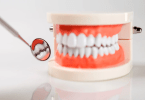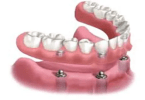
Perhaps it is difficult to eat and even speak when you have a sore throat. The throat will also feel gritty and irritated, making swallowing more difficult. Sore throats are a severe inconvenience that also happens to be a prevalent symptom of colds and flu, resulting in over 15 million doctor visits each year.
You don’t think about a sore throat until you have one if you’re like most people.
Symptoms
If you have a cold, you will also have a runny nose, cough, and even fever and feel extremely sleepy.
Other signs and symptoms include:
- Glands enlarged in the neck
- Tonsils large and red
- Rash
- Fever
- Bellyache
- Vomiting
Causes of Throat Pain
A variety of factors also causes a painful throat. The following are a few of the most common:
- Viral Infections
- Flu
- Cold viruses
- COVID-19
- Croup and mononucleosis
- Herpangina
- Measles and chickenpox
- Infections caused by bacteria
Other includes:
1. Strep Throat
It can produce significant throat pain and make swallowing difficult.
The tonsils will sometimes swell up a lot. Arcanobacterium haemolyticum is a bacteria that can cause throat soreness and a rash. Antibiotics are tried to treat bacterial causes of throat discomfort. If left untreated, strep throat can lead to heart or renal problems.
2. Sinus Infections
The sinuses are a series of hollow spaces in the back of your head. Bacteria, viruses, and even fungi can induce post-nasal drip by infecting the sinuses. Mucus runs down the back of the throat with this condition, and a painful throat might be caused by contaminated mucous.
3. Allergies
When the immune system reacts to allergens such as pollen, grass, and pet dander, chemicals are released, causing nasal congestion, watery eyes, sneezing, and throat irritation.
A buildup of mucus in the nose might cause it to flow down the back of the throat. The condition is known as postnasal drip, which can irritate the throat.
4. Acid Reflux
While sleeping, stomach acid can enter the esophagus, back of the throat, and mouth.
That’s why acid reflux-related sore throats are often worse in the morning. Acid reflux during the night can start to collapse the protective enamel of teeth.
5. Environmental Irritants
A painful throat can be caused by irritation from dry air, chemicals, or cigarette smoke. Breathing with your mouth open can aggravate this.
6. Laryngitis
The inflammation of your vocal box is known as laryngitis. It can happen if you use your voice excessively. Singers and others who utilize their voices as part of their employment may have laryngitis. Hoarseness and pain when speaking are also symptoms of the illness.
7. Intubation
A breathing tube is put into the patient’s airway during intubation. It may irritate the throat, causing discomfort.
During surgery, sickness, or injury, breathing tubes are used. The pain is only transitory and typically disappears within a day or two after the tube is withdrawn.
8. Surgery
Throat surgeries, such as thyroidectomy (removal of the thyroid), can cause sore throat.
When Should You Seek Medical Help?
If you or your child has strep throat symptoms, see a doctor. Strep throat testing may be required for you or your child. If you or your kid has any of the following symptoms, see a doctor:
- Breathing problems
- Swallowing problems
- Saliva or phlegm with blood
- Drooling excessively (in young children)
- Dehydration
- Swelling and discomfort in the joints
It is not an exhaustive list. If you have any severe or persistent symptoms, please visit your doctor.
Prevention
- Avoiding the microorganisms that cause sore throats and practicing proper hygiene are the best ways to avoid them. Follow these guidelines and instill them in your child:
- Wash hands thoroughly and repeatedly for at least 20 seconds.
- Keep your hands away from your face. Keep your hands away from your eyes, nose, and mouth.
- Avoid sharing food, drinking glasses, and utensils.
- Cough or sneeze into a tissue and discard it before washing your hands. Sneeze into your elbow if required.
- When soap and water aren’t available, use alcohol-based hand sanitizers instead of washing your hands.
- Avoid using your mouth to touch public phones or drinking fountains.
- Clean and disinfect phones, doorknobs, light switches, remote controls, and computer keyboards regularly.
- Keep your hotel room clean when traveling by cleaning the phones, light switches, and remotes.
- Keep a safe distance from persons who are unwell or have symptoms.
Sore Throat Treatment
Most sore throats go away after a week. However, this varies depending on the cause.
A doctor may prescribe antibiotics if a bacterial infection causes a sore throat. Even if they feel better before finishing all the medication, people should always complete the course.
A sore throat caused by a viral infection normally does not require medical attention. Acetaminophen or other moderate pain killers can aid with discomfort and fever, and pediatric versions of these drugs are available. A pharmacist can help you decide which ones to use and how much to take.
It is critical always to read and follow the directions on any prescription and not take more than recommended.
A person with pharyngitis might need to stay in the hospital. They may require intubation to help them breathe in severe circumstances. If testing identifies a tumor or another reason, the doctor will talk to the patient about treatment choices.
Conclusion
Viral and bacterial illnesses cause most sore throats and irritants, and accidents. Without therapy, most sore throats improve in a few days. If you are suffering from a sore throat and have problems breathing, see the best ENT specialist straight once.
FAQs
1. Does Covid start with a sore throat?
A sore throat is a common COVID-19 symptom that appears in the first week of illness and goes away fast. The first day of infection is the worst, but it gets better with each passing day.
2. How does sore throat feel?
Your throat hurts if you have a sore throat, and it irritates or irritates you. You may experience slight discomfort or a burning sensation. When you swallow, a painful throat may feel even worse.
3. What is the fastest way to cure a sore throat?
You can use the following resources to assist you:
- Gargle with salt water, but avoid using apple cider vinegar.
- Drink plenty of extra-cold beverages.
- Take a bite out of an ice pop.
- Use a humidifier to combat dry air.
- Avoid acidic foods
- Antacids should be swallowed.
- Drink herbal teas.






